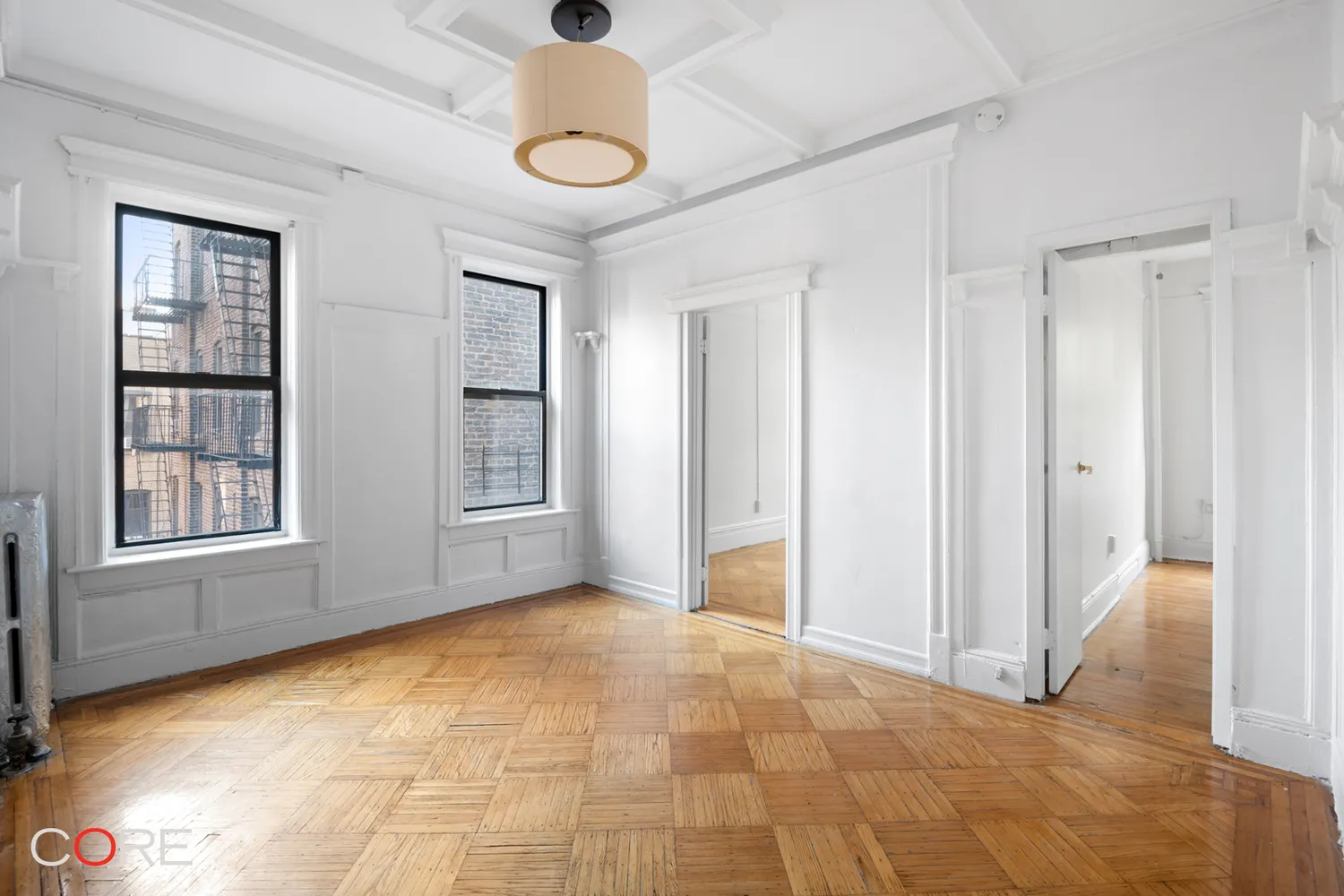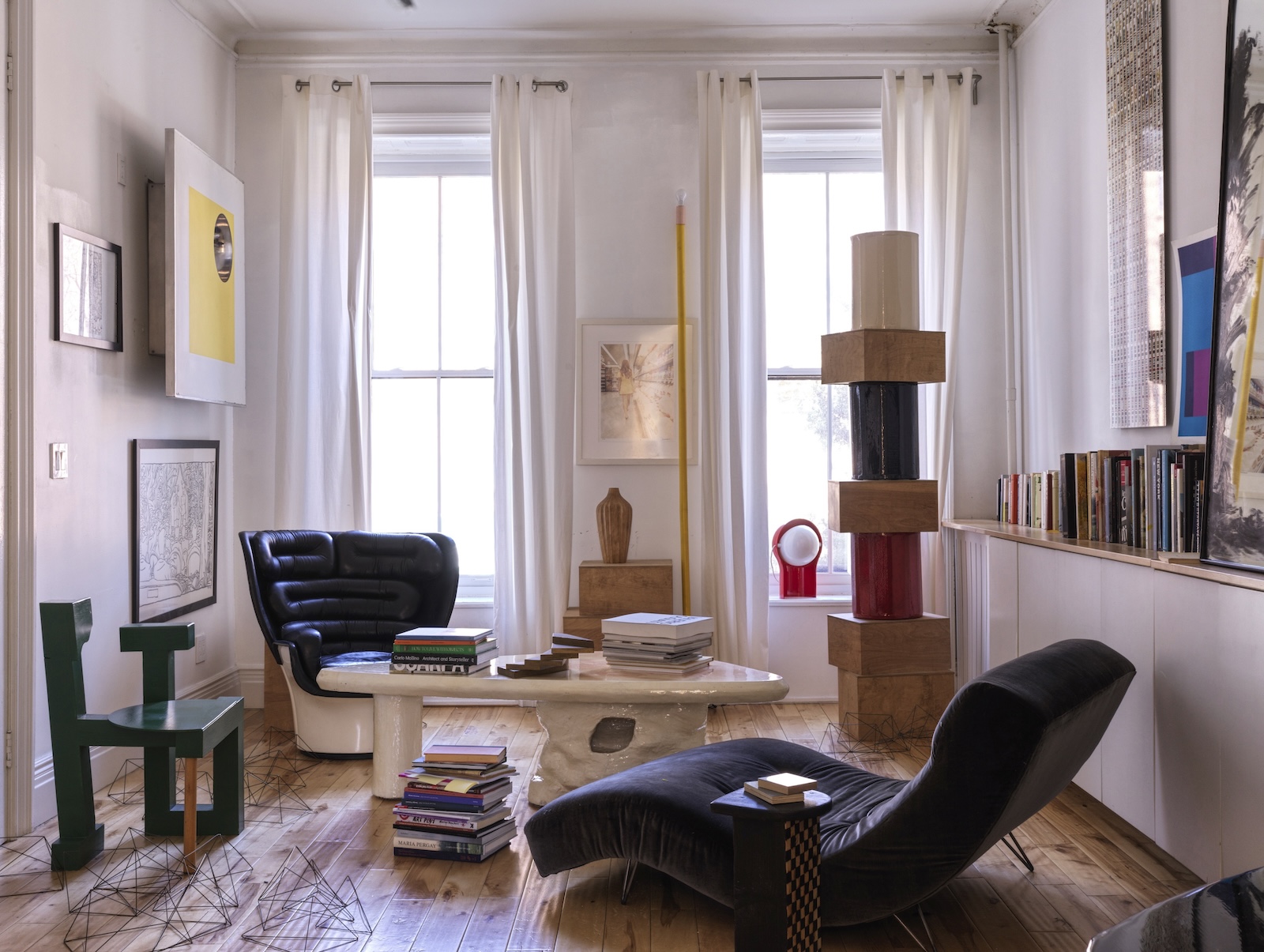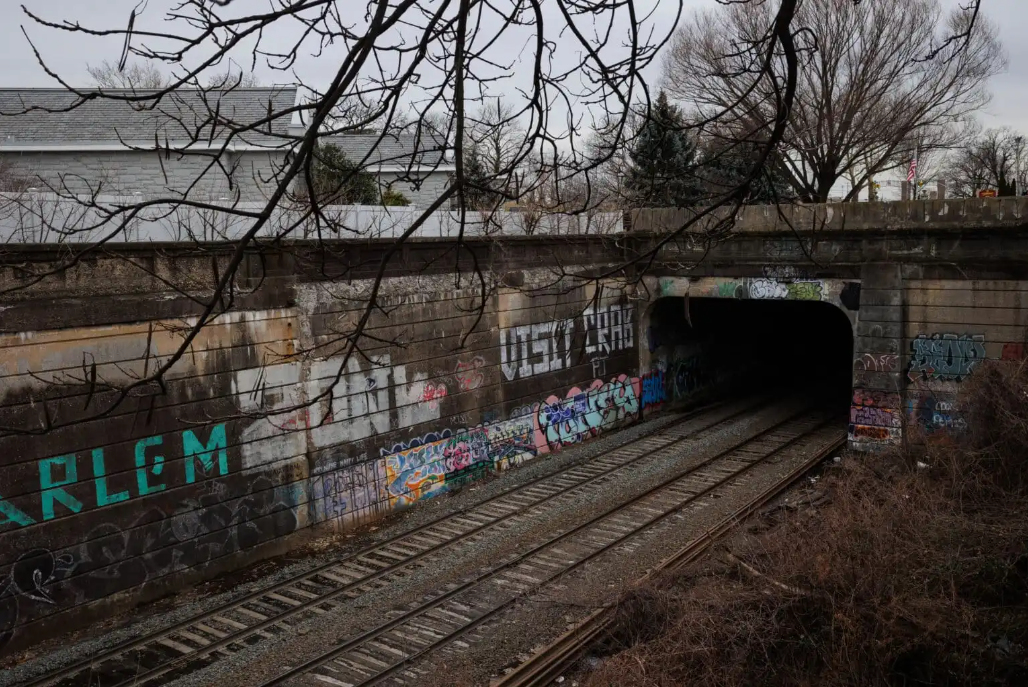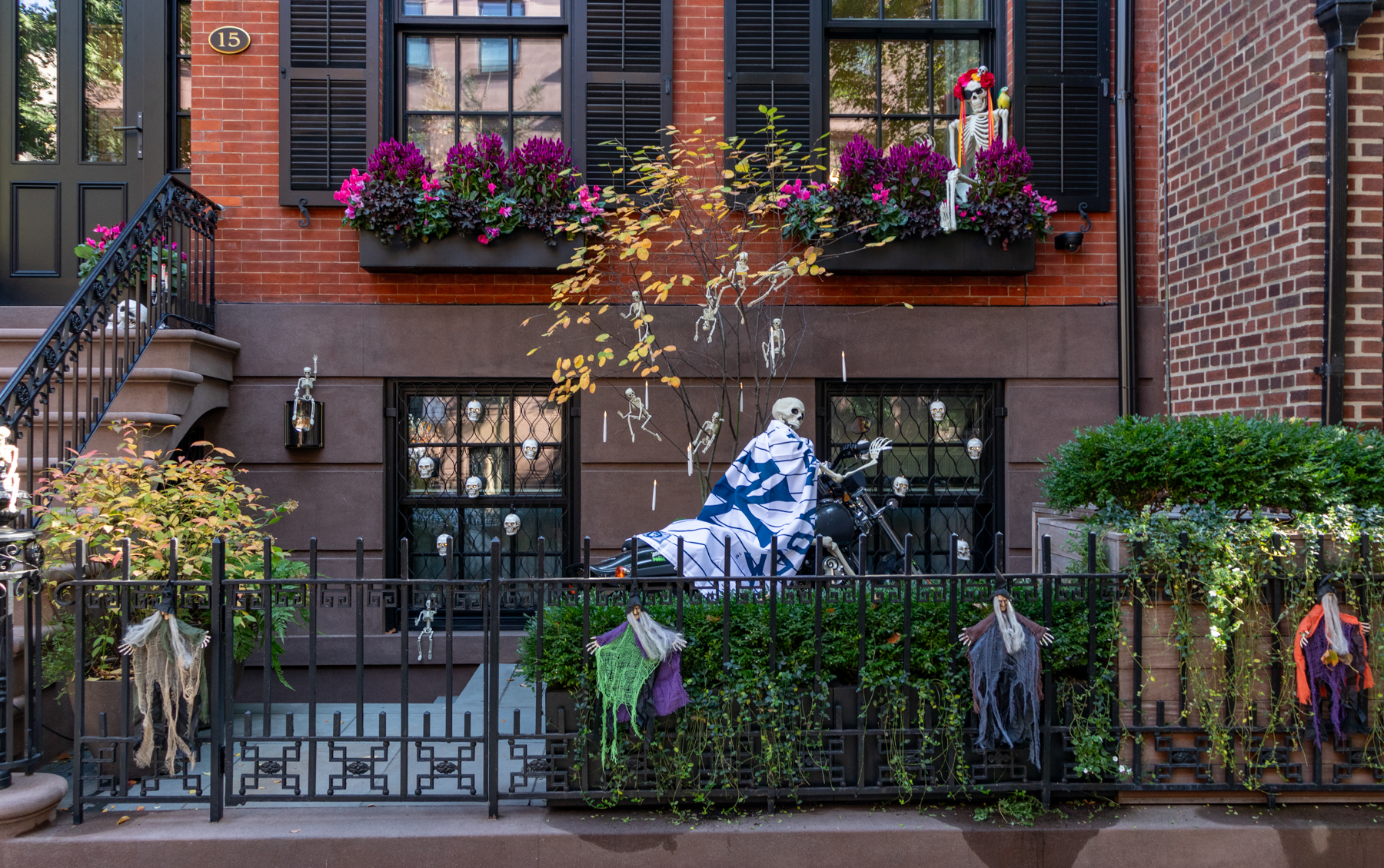Quote of the Day
unless the city’s economy completely falls apart in a way that’s vastly disproportional to the rest of the country, you won’t see prices tank in “central” brooklyn as they have nationally. these neighborhoods improved in a sustainable way through renovations, through new businesses, through improved schools, and, yes, through quality new construction – all of…
![]() unless the city’s economy completely falls apart in a way that’s vastly disproportional to the rest of the country, you won’t see prices tank in “central” brooklyn as they have nationally. these neighborhoods improved in a sustainable way through renovations, through new businesses, through improved schools, and, yes, through quality new construction – all of which forces have less to do with speculation and a lot more to do with professionals and other middle- and upper-middle class people wanting to stay in the city and wanting to invest in their neighborhoods. unless things get really bad, i don’t see those people changing course drastically. especially now – most can’t afford to. yes, prices will continue to drop, until credit loosens up again and prices have come more in line with incomes and rentals. but expecting prices to return to pre-2000 prices, when brooklyn was a very different place, is evidence perhaps of having partaken of the smoke of ye olde crack pipe.
unless the city’s economy completely falls apart in a way that’s vastly disproportional to the rest of the country, you won’t see prices tank in “central” brooklyn as they have nationally. these neighborhoods improved in a sustainable way through renovations, through new businesses, through improved schools, and, yes, through quality new construction – all of which forces have less to do with speculation and a lot more to do with professionals and other middle- and upper-middle class people wanting to stay in the city and wanting to invest in their neighborhoods. unless things get really bad, i don’t see those people changing course drastically. especially now – most can’t afford to. yes, prices will continue to drop, until credit loosens up again and prices have come more in line with incomes and rentals. but expecting prices to return to pre-2000 prices, when brooklyn was a very different place, is evidence perhaps of having partaken of the smoke of ye olde crack pipe.
— by i disagree in Last Week’s Biggest Sales









Interesting comments here.
By family of four, I actually meant two parents, two kids. Anyone who has four kids in 2008 is out of their minds. Ha.
I think the ability and temperament to raise a family in the big city exists, but is not common. My fiance is born-and-raised, but at the end of the day, not many people are, and it takes a special type to do it. As one of my recently-moved friends put it, Try and put you and your spouse in a two-bedroom apartment in a nasty winter month with two healthy boys, aged 4 and 6, and see who comes out alive.
What I’ve found interesting is what looks to me to be a huge post-9/11 baby boom combined with a booming economy and lower crime. These things have created sort of a perfect storm of people becoming “urban families.” Will this trifecta continue? Well, one third of it just took a beating. How will the rest fare?
I’m not saying people are going to lose their shirts in their home values (especially if they bought their homes to live in and not flip). I’m just saying that the fabric of the city is going to be changing, no doubt, and that’s got to change the picture for home values.
I totally agree with you wine lover. We bring our kids up in Brooklyn because we like the community and aren’t isolated in our backyards/homes all day. I couldn’t imagine driving everywhere and not having a sidewalk. Also I grew up in the city and also couldn’t imagine having to take a commuter train like LIRR and Metro North to work and to be forced to live by a train schedule. I jump on the subway for work and am a quick ride to our neighborhood if there are any issues at school like having to come home for a sick child, etc.
I will admit that when we had our second child we looked at houses in the suburbs but the taxes in most commutable neighborhoods run about $12,000 for a 600k house and heating averages at least $500 a month in the winter and when you add in two cars and two commuter rail passes, it’s no bargain. Also home repair is quite costly, boilers break, roofs need to be repaired, septic tanks go and that adds up. We might have the occasional assessment for our building, but we share it amongst all the owners. This is the reason families of four squeeze into an apartment. Also we don’t need a yard, we have Prospect and Central Park and are always doing stuff in the city like seeing plays at the New Victory, going to museums, etc. I love that when we are bored, we walk to the transit museum and check out the old trains or walk across the Brooklyn Bridge. I don’t want to have my kids stuck in a suburb sitting in a basement or playroom playing XBox all day. I love that it takes ten hours to walk down our block because my kids keep running into their friends (of course that’s also a bit annoying at times).
i agree that brooklyn has improved dramatically. i’ve seen it personally in several hoods I’ve lived in. both with retail and crime statistics, and definitely with schools.
there are many good schools that will be perceived as “better” when higher income, better educated families send their kids there. we are zoned for 17, and i went on the tour yesterday, and all the people their were of this ilk. so, here’s my anecdote for the day. a well regarded school (from an academic standpoint) which will soon be flooded with well dressed kiddies in the playground as the majority of new buildings including the waterfront big buildings are zoned for 17 in williamsburg, there are 4 kids from our building alone going there starting next year. also, the zoned middle school is very good too. prices will eventually rise along with this increased perceived value. nyc low real estate taxes – especially if you have an abatement as many do in williamsburg – ends up being cheaper and easier than living in the suburbs if you send your kids to local schools.
anyway, many do have stable incomes and are in for the long haul.
I have to question why a rational family would squeeze themselves into a small apartment in say, Park Slope, when they could otherwise live in a much roomier house in the burbs with excellent public schools. Are these people doing their kids an injustice making them live like old-time urban huddled masses? At what point does wanting to live in the city become stupid?
The parts of Brooklyn that will remain stable are the ones zoned for good schools. The reason real estate isn’t dropping that much is because the public schools in these areas are unbelievable. In parts of Cobble Hill, Carroll Gardens and Park Slope there are tons of parent-involved schools with dedicated teachers and outstanding programs. Those who can’t afford private schools and want to live in the city will still flock to these neighborhoods. Families of four will squeeze into two bedroom co-ops and sacrifice space for these schools.
Schooling plays a key role. Even prices in the N. Slope are much lower than Center Slope because PS 282 is not as good as PS 321. The same goes for parts of Carroll Gardens that are zoned for PS 32 not PS 58 or PS 29. Also in our public school, half of my children’s class are folks that moved from Manhattan for the good schooling and a bit more space.
That said, the middle schools still aren’t all that good, so I do see people moving when kids are a bit older. I have a children in public school and applying to middle school is a huge deal. Many folks with kids in younger grades often reference that they might consider moving when their older child is in 5th grade. Of course if people stick around the middle school landscape might change drastically in the next few years.
The biggest change in brooklyn since 2000, and this is what the brokers love, is that it has gotten progressively less affordable to the average new Yorker. Is that a good thing? Yes, if you work for Corcoran, but otherwise it’s not so good. And ultimately it will retard and undermine the real gains that have been so long in the making.
Brooklyn is STRONG but suffering as the rest of the country. The credit freeze will impact short-term. Consider getting back to the market in 9 months, by then prices will drop enough to enable new investors to make money in the long term.
Pretty much the exact same argument could have been made in 1989 (and in fact was). For those old enough to remember, the city was a completely different place in 89 compared to a few years earlier. As a result of the huge bull market neighborhoods had been completely transformed. No person not from the hood would ever walk around in alphabet city before about 83. By 89 I was going out in the East Village all the time. I remember walking around in Soho in the early 80s and it was still very much a ghost town – by 89 it had become filled with quality galleries and great restaurants. There were streets in the 70s that the police would not venture to visit. NYC still had a ways to go, but the city had been vastly improved by 89 in many ways – renovations, quality new buildings, schools were getting better, etc., etc. Guess what people, real estate finally started going down around 2 years after the 87 crash which was really a 1 day event that shook the city and drastically reduced real estate prices. The crash was a fluke caused by computer design to short the market if it started falling and it just snowballed.
What we are going through now is so much more significant. A drastic economic dislocation the likes of which we haven’t seen in many decades and you think Brownstone Brooklyn won’t get hit and hit hard?
Indeed, the difference on 5th ave between 2000 and 2008 is amazing.
It does make we wonder though, if it changed so quickly, can it roll back quickly as well?
What if stores and restaurants start to close because of the decreased business due to the recession, or an inability to secure funding to run day-to-day operations?
What if landlords, having tasted higher rents, refuse to lower them to allow lower end businesses to rent space?
Could it – for a time – get *worse* than it was in 2000?